Manager Civil
20+ Manager Civil Interview Questions and Answers

Asked in Dineshchandra R. Agrawal Infracon

Q. What software knowledge do you have related to Billing & Planning?
I have extensive knowledge of billing and planning software in the civil engineering field.
I am proficient in using software such as Primavera P6 for project planning and scheduling.
I have experience with billing software like QuickBooks and SAP for managing financial aspects of construction projects.
I am familiar with AutoCAD and Revit for creating detailed drawings and plans.
I have used Microsoft Project for resource allocation and tracking progress.
I am comfortable with us...read more

Asked in Spsi

Q. What is a curing compound, and what are the different types of curing?
Curing compound is a liquid applied to concrete to prevent moisture loss during the curing process. Types include membrane-forming and penetrating.
Curing compound is used to prevent moisture loss during the curing process of concrete.
Membrane-forming curing compounds create a film on the surface of the concrete to prevent moisture loss.
Penetrating curing compounds penetrate the surface of the concrete to prevent moisture loss.
Curing compounds can improve the strength and dura...read more
Manager Civil Interview Questions and Answers for Freshers

Asked in Randstad

Q. How will you ensure EHS pertaining to Civil works in a fast-track Industrial Project?
Ensuring EHS in fast track Industrial Project for Civil works requires strict adherence to safety protocols and regular monitoring.
Implementing a comprehensive EHS plan specific to Civil works
Conducting regular safety training sessions for all workers and contractors
Ensuring proper use of personal protective equipment (PPE) at all times
Regularly inspecting the work site for potential hazards and taking corrective actions
Maintaining open communication channels for reporting an...read more

Asked in Baramati Agro

Q. What will you do if NDT Tests of an old structure are not satisfactory?
I will investigate the reasons for unsatisfactory NDT tests on the old structure and develop a plan to address the issues.
Conduct a thorough review of the NDT test results to identify specific areas of concern
Consult with NDT experts to determine if there were any errors in the testing process
Inspect the old structure for any visible signs of damage or deterioration
Develop a remediation plan to address any issues found, which may include repairs, reinforcement, or replacement...read more

Asked in Baramati Agro

Q. What will you do if you do not receive drawings in time?
I will communicate with the relevant stakeholders to understand the reason for the delay and work on finding alternative solutions to keep the project on track.
Communicate with the project team to understand the reason for the delay
Explore alternative sources for obtaining the drawings
Adjust the project timeline accordingly to accommodate the delay
Prioritize tasks that can be completed without the drawings

Asked in Randstad

Q. What is slip form, and what is one critical operational issue related to it?
Slip form is a method of continuous concrete placement using a moving formwork system.
Slip form is commonly used in the construction of tall structures such as towers and bridges.
One critical operational issue related to slip form is maintaining the proper concrete consistency to ensure smooth and uniform pouring.
If the concrete consistency is not properly maintained, it can lead to issues such as segregation, which can compromise the structural integrity of the final product...read more
Manager Civil Jobs
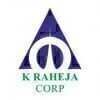



Asked in Spsi

Q. What are the different types of cement, and can you explain the testing procedures for each?
Different types of cement are used for different purposes. Testing procedure includes various physical and chemical tests.
There are various types of cement such as Ordinary Portland Cement (OPC), Portland Pozzolana Cement (PPC), Rapid Hardening Cement (RHC), etc.
Physical tests include fineness, setting time, soundness, compressive strength, etc.
Chemical tests include the determination of the percentage of lime, silica, alumina, iron oxide, etc.
The testing procedure is carried...read more

Asked in AVON TUBETECH

Q. What is plumbing & Fabrication & civil work. Cost per sqft
Plumbing involves water systems, fabrication is construction processes, and civil work encompasses infrastructure development.
Plumbing includes installation and maintenance of pipes, fixtures, and appliances for water supply and drainage.
Fabrication refers to the process of constructing products from raw materials, often involving cutting, bending, and assembling.
Civil work involves the design and construction of infrastructure like roads, bridges, and buildings.
Cost per sqft...read more
Share interview questions and help millions of jobseekers 🌟


Asked in Zetwerk

Q. What strategies can be employed for effective management?
Effective management in civil engineering involves strategic planning, communication, and resource optimization.
Set clear goals: Define specific, measurable objectives for projects to ensure all team members are aligned.
Foster open communication: Encourage feedback and discussions among team members to enhance collaboration and problem-solving.
Utilize project management tools: Implement software like MS Project or Trello to track progress and manage resources efficiently.
Cond...read more

Asked in Reliance Industries

Q. What are the reasons for providing steel reinforcement at both the top and bottom of a concrete structure?
Steel is provided at top and bottom for reinforcement and stability.
Steel reinforcement at the top and bottom of a structure helps to distribute and resist loads.
It provides additional strength and stability to the structure.
Steel bars at the top and bottom prevent cracking and improve durability.
Reinforcement at both ends helps to prevent bending and sagging.
Examples include reinforced concrete beams, slabs, and columns.

Asked in Sushma Buildtech

Q. What is the construction cost of a single tower?
The construction cost of a single tower varies widely based on location, design, materials, and labor costs.
Location: Urban areas typically have higher costs due to land prices and regulations. For example, a tower in New York City will cost more than one in a rural area.
Design Complexity: A skyscraper with unique architectural features will be more expensive than a standard design. For instance, a tower with a glass facade may incur higher costs.
Materials: The choice of mate...read more

Asked in Sushma Buildtech

Q. What is the finishing schedule for a single tower?
The finishing schedule for a single tower outlines the timeline and tasks for completing construction and finishing works.
Site Preparation: Clearing and leveling the site, which typically takes 1-2 weeks depending on site conditions.
Foundation Work: Excavation and pouring concrete for the foundation, usually lasting 2-4 weeks.
Structural Framework: Erecting the tower's structural framework, which can take 4-8 weeks based on the tower's height and complexity.
Masonry and Claddin...read more
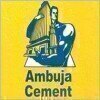
Asked in Ambuja Cements

Q. Tell me about MIS.
MIS stands for Management Information System which is a computer-based system that provides information to support managerial decision-making.
MIS collects, processes, stores, and disseminates data in the form of information needed to carry out the functions of management.
It helps in planning, controlling, and decision-making by providing timely, accurate, and relevant information.
MIS can be used in various fields such as finance, marketing, human resources, and operations.
Exa...read more

Asked in Spsi

Q. What is cumulative billing?
Cumulative billing is the process of adding up all the invoices or bills over a period of time.
It is a way of tracking the total amount billed for a project or service.
It is commonly used in construction projects where payments are made in stages.
Cumulative billing helps to ensure that the total amount billed does not exceed the project budget.
It is also used in service industries where customers are billed on a recurring basis.
For example, a monthly subscription service may ...read more
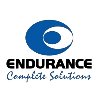
Asked in Endurance Technologies

Q. What are the reinforcement details and placement methods for a VDF floor?
VDF floor reinforcement details and placement method involve using welded wire mesh or steel bars to provide strength and durability to the concrete slab.
Welded wire mesh or steel bars are commonly used for VDF floor reinforcement
The reinforcement should be placed at the mid-height of the slab to provide maximum strength
Proper spacing between the reinforcement bars or mesh should be maintained as per design specifications
The reinforcement should be securely tied together at i...read more

Asked in Sudarshan Chemical Industries

Q. How can maintenance costs be reduced?
Reduce maintenance cost by implementing preventive maintenance, using high-quality materials, and training staff.
Implement preventive maintenance to catch issues before they become costly repairs
Use high-quality materials to reduce the need for frequent repairs
Train staff on proper maintenance techniques to prevent damage and extend the life of equipment
Consider outsourcing maintenance tasks to specialized companies to reduce costs
Regularly review and optimize maintenance sch...read more
Asked in Biada, Patna

Q. Bridge part and length of span and project cost
Bridge part, length of span, and project cost are interrelated factors in civil engineering projects.
The length of the span determines the type of bridge structure required, such as beam, arch, or suspension.
The project cost is influenced by the type of bridge structure, materials used, and construction method.
Other factors affecting project cost include site conditions, accessibility, and environmental impact.
Design and construction of bridge parts must adhere to safety stan...read more

Asked in Randstad

Q. What is the full form of HIRA?
HIRA stands for Hazard Identification and Risk Assessment.
HIRA is a systematic process for identifying potential hazards in the workplace and assessing the associated risks.
It helps in determining appropriate control measures to eliminate or reduce the risks to an acceptable level.
Examples of hazards that may be identified through HIRA include chemical exposure, fire hazards, and ergonomic risks.

Asked in Randstad

Q. What salary increase do you expect?
I expect a 10% increase in my salary.
I have consistently exceeded performance targets in my current role.
I have completed additional training and certifications to enhance my skills.
I have researched industry standards and determined that a 10% increase is reasonable.
I have received positive feedback from colleagues and supervisors on my work.
I have been with the company for several years and have taken on additional responsibilities.

Asked in Spsi

Q. What is the water ratio for polymer mortar?
The water ratio for polymer mortar varies depending on the specific product and application.
The water ratio should be specified by the manufacturer or supplier of the polymer mortar.
In general, the water ratio for polymer mortar is lower than that of traditional cement mortar.
The water ratio can affect the strength and durability of the polymer mortar, so it is important to follow the manufacturer's instructions.
For example, a common water ratio for a polymer-modified thinset...read more

Asked in Ambuja Cements

Q. What are the important quality documents?
Quality documents ensure compliance with standards and specifications in civil engineering projects, enhancing safety and performance.
Quality Assurance Plan: Outlines procedures to ensure quality standards are met throughout the project.
Quality Control Procedures: Specific methods for testing materials and workmanship, e.g., concrete slump tests.
Inspection Reports: Document findings from site inspections to ensure compliance with design specifications.
Non-Conformance Reports:...read more

Asked in Interface Microsystems

Q. Why do you want to make a change?
I seek new challenges and opportunities for growth in my career as a Manager in Civil Engineering.
Desire for professional growth: I want to expand my skills and take on more responsibilities.
Seeking new challenges: My current role has become routine, and I thrive in dynamic environments.
Alignment with career goals: This position aligns with my long-term aspirations in civil engineering.
Desire to contribute to impactful projects: I want to work on projects that make a differen...read more
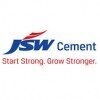
Asked in JSW Cement

Q. most challenging project
The most challenging project I worked on was a high-rise building construction in a tight urban area.
Coordinating with multiple stakeholders including architects, engineers, contractors, and local authorities
Managing logistics and scheduling to ensure timely delivery of materials and equipment
Navigating complex zoning and permitting processes
Addressing unexpected issues such as site constraints and design changes
Ensuring strict adherence to safety regulations and quality stan...read more
Asked in VRV HOSPITALITY

Q. Project cost and estimate
Project cost and estimate are crucial aspects of project management.
Project cost includes all expenses incurred during the project.
Estimate is the prediction of the total cost based on available information.
Factors influencing project cost: labor, materials, equipment, overhead, etc.
Use cost estimation techniques like bottom-up, top-down, parametric, etc.
Regularly update cost estimates to track project budget.
Example: A construction project's cost estimate includes labor, mat...read more
Interview Questions of Similar Designations
Interview Experiences of Popular Companies


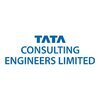





Reviews
Interviews
Salaries
Users

















